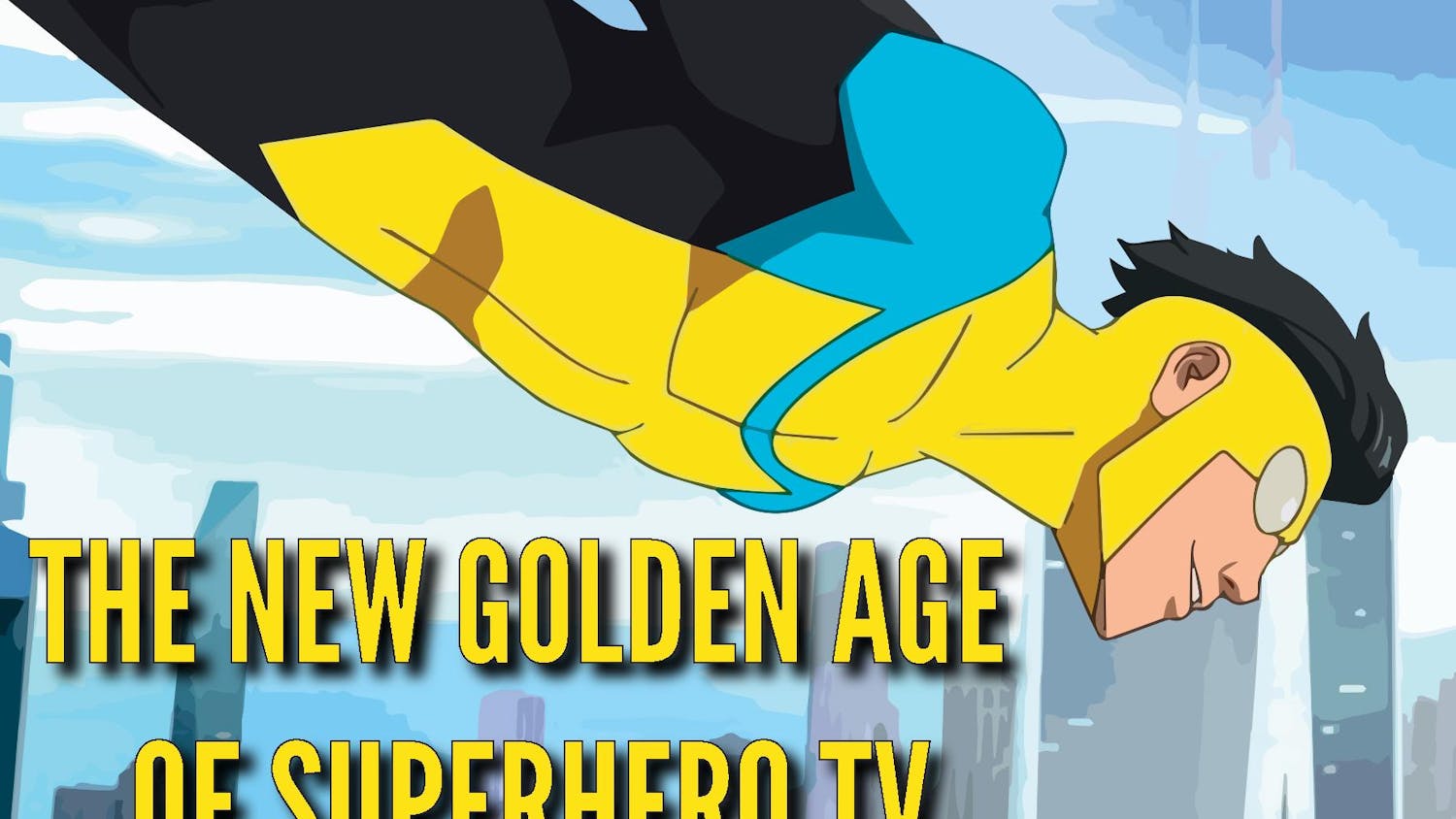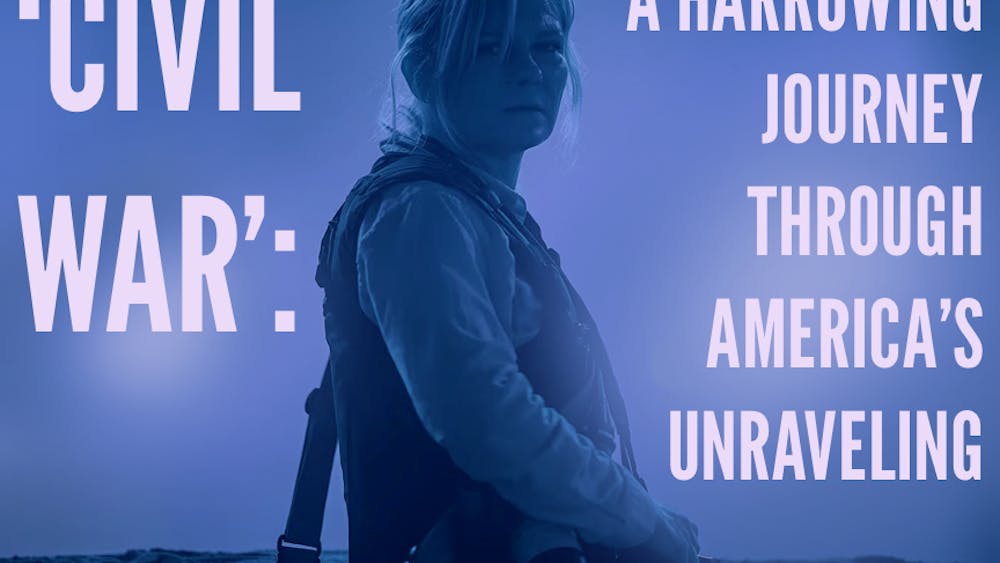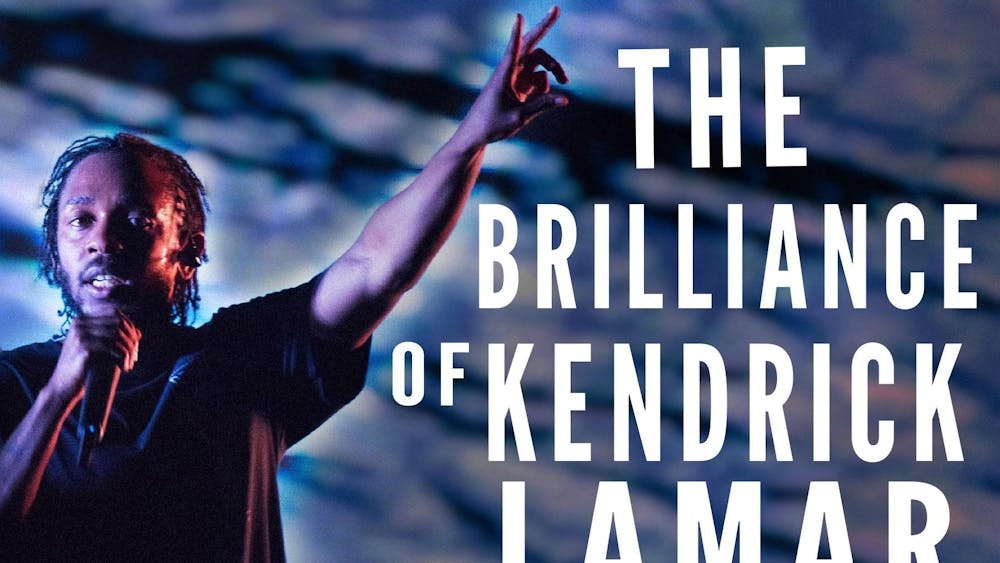
“Do you ever get the feeling that to know you more is to love you less?” This question neatly encapsulates this series’ well-developed themes of intimacy and fear, explored through every major character and their relationships. The character who expresses this existential anxiety claims eight last names because her fathers are in a committed gay monogamous relationship. Such is the world of “Bojack Horseman.”
Netflix’s hilariously depressing comedy enters its fourth, and possibly best, season, more confident and ambitious than ever before. Chronicling the depressive malaise of the titular washed-up sitcom star, “Bojack Horseman” consistently tackles storylines of astounding depth and darkness — including this season’s adventures with Bojack’s maybe daughter — while remaining aloft due to a never-ending stream of puns and sight gags. Other regular characters include Princess Carolyn, a manager who tries to balance work and personal life; Mr. Peanutbutter, an embodiment of America’s sunny optimism who enters the California governor race; Diane, Bojack’s former ghostwriter who struggles within a marriage to Mr. Peanutbutter and her job at a superficial blog; and Todd, a constantly giving yet eternally confused former friend who wrestles with his newfound asexuality. “Bojack Horseman” possesses an enviably deep list of recurring characters, running gags and callbacks to prior episodes within an imaginative world populated by animal-human hybrids brought to dazzling heights through simplistic yet evocative animation. The attention to detail enhances the world and characters, hiding jokes in chyrons and store fronts.
The series has grown from its surprisingly great first season to the progressively darker second and third seasons, each building upon the deft character work and sturdily constructed thematic arcs of prior episodes. Skewering celebrity culture and political corruption with palpable glee, “Bojack Horseman” handily juggles social commentary with its rapid-fire jokes. Pivoting from the prior seasons’ fixation on the depths of Bojack’s debauchery, the fourth instead focuses on the possibility of redemption, of hope, of a new beginning despite past missteps. The ceaseless march of time leaves many behind, the series argues, but reconciling with the tangled past messes that ensnare our minds is necessary and healthy. Ambitious episodes place the audience within Bojack’s head to experience the crippling effects of clinical depression and in another character’s dementia-riddled mind that loses grip of temporal and spatial limitations. Even more so than the third season’s inventively creative conceits, these episodes deepen but do not distract, enhance rather than intrude, on the emotions and sublime hilarity.
Conveniently, the season’s first and second episodes ably demonstrate the series delivering on both fronts. The premiere follows Mr. Peanutbutter’s campaign for the governor seat against incumbent Woodchuck Coodchuck-Berkowitz. The episode churns through plot at an astounding pace, leaving room for exceedingly clever digressions, including a riff on “I’m Just a Bill” of “Schoolhouse Rock” fame and a quick jaunt through “Ski School.” Its absurdist streak and astonishingly dense jokes harken back to golden-age “Simpsons” and “Arrested Development,” as it manages to land well-earned jabs at election coverage and arcane legislation, crafting possibly the series’ most purely hilarious episode. Immediately after, the second episode’s knock-out emotion provides the series’ trademark tonal whiplash, handled with aplomb to deliver one of the series’ best episode to date. Centering on an entire year as Bojack hides in his mother’s old summer home, the episode melds the present with the past, weaving past trauma with present hurt, ending with a suicidal gut punch that rivals the devastation of prior seasons. One particular sequence, as a musical duet unites past and present, aches with sincerity and anguish, as memory floods the dams of denial and past trauma inflicts present hurt.
“Bojack Horseman” masks its deep pain with a colorful cascade of inspired humor and ambitious structural machinations, yet the series consistently nails the debilitating experience of mental illness and profound existential dread. The goofy comedy endears us to the characters, allowing the emotional beats to land more forcefully, while the painful tragedy acts as a grounding force for the surreal and absurd. “Bojack Horseman” proves beyond any doubt that comedy and tragedy are two sides of the same coin, and what a wonderfully insane coin it is.













